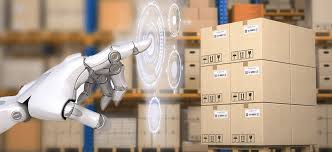The growing demand for automation has made every AI development company in Berlin a crucial partner for businesses in manufacturing and logistics. As Berlin’s industries move toward smarter processes, companies are investing heavily in AI-driven optimisation, predictive analytics, and intelligent operations to stay competitive.
Why AI Is a Big Deal for Berlin’s Manufacturers and Logistics Companies
Berlin has always been a place where new ideas take off, and now AI is giving traditional industries a much-needed upgrade. Manufacturers use advanced analytics to fine-tune production, while logistics companies lean on AI to cut down on delivery delays, save fuel, and keep inventory mistakes to a minimum.
Here’s where AI pulls its weight:
- Predictive Maintenance Means No More Costly Downtime
Nothing kills productivity like unexpected equipment failures. But with AI, factories can actually spot problems before things break down.
AI tools—built by local development teams—analyze how machines behave, flag dodgy parts, and keep repairs cheap and quick. It all adds up to fewer interruptions and less stress on the factory floor.
- Smarter Supply Chains and Inventory
AI systems keep an eye on inventory, supplier performance, and deliveries in real time. Logistics companies in Berlin work with AI experts to set up systems that forecast demand, pick the best times to reorder, automate the warehouse, and avoid both overstocking and empty shelves. The result? Better planning, faster orders, and less waste.
- Route Optimization and Delivery Automation
Berlin’s streets get pretty hectic, and delivery teams need all the help they can get. AI digs into real-time data to find the best routes, set tight delivery windows, and use resources efficiently. The right AI developer can crank out solutions that shave off delivery times and keep fuel costs down.
- Quality Control Gets a Major Upgrade with Computer Vision
AI-powered cameras and sensors now spot defects long before a human inspector would. These systems scan products as they move down the line and instantly flag anything off. So only the good stuff makes it out the door, and manufacturers waste less material in the process.
- Taking Over the Boring Stuff
From packing boxes to stacking pallets, robots driven by AI are tackling repetitive tasks, leaving people free to focus on things that actually need a human brain—creative thinking, troubleshooting, and so on.
- Better Worker Safety
AI keeps an eye on workplace safety, too. It can pick up on hazards, track where workers go, and send out alerts if something’s not right. That means fewer accidents and a safer, more efficient work environment.
Why Berlin’s Industry Needs AI Now
Companies that go for AI see real results: lower costs, better productivity, faster decisions, and tighter coordination across the board. Managing a workforce, keeping the supply chain humming, staying competitive—AI helps with all of it. In today’s Berlin, using AI isn’t just a nice-to-have. It’s the way forward.
Wrapping Up
Manufacturing and logistics in Berlin are changing, and businesses need to keep up. Whether it’s keeping machines running, automating the supply chain, or making sure only top-quality products leave the factory, AI is leading the way. Partnering with the right AI development company in Berlin isn’t just smart—it’s essential for anyone serious about the future.
Frequently Asked Questions
- Why does AI matter for manufacturers in Berlin?
AI boosts accuracy, keeps machines running, and helps companies streamline how work gets done. - How do AI development companies in Berlin help logistics businesses?
They build custom tools for route planning, automating warehouses, predicting demand, and tracking inventory. - What kind of solutions do AI companies in Berlin offer?
They deliver machine learning models, predictive maintenance systems, computer vision tools, automation tech, and advanced analytics. - Is AI too expensive for smaller manufacturers?
Not necessarily. AI solutions can be tailored to fit smaller budgets, so even SMEs can get in on the action. - How does AI make factories and warehouses safer?
AI systems monitor the work environment, spot risks, and send out alerts to stop accidents before they happen.


